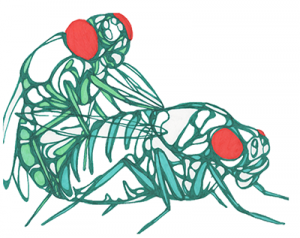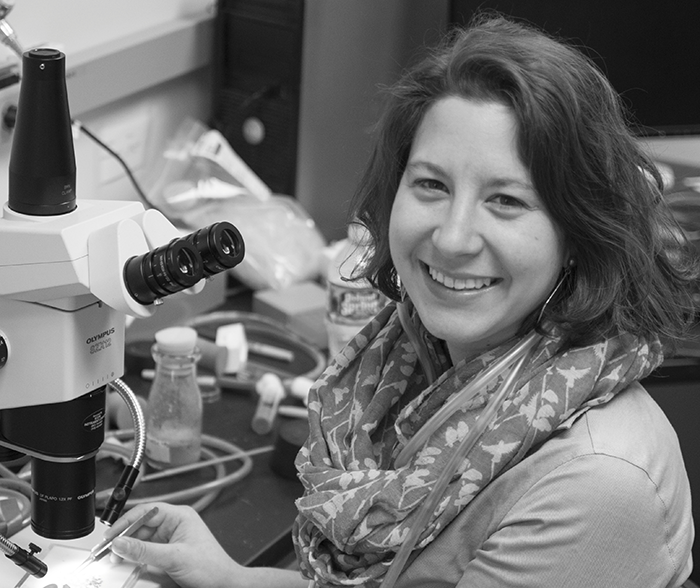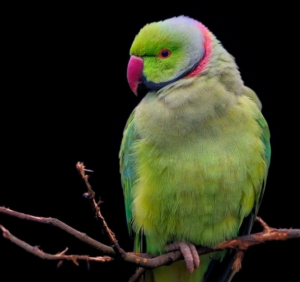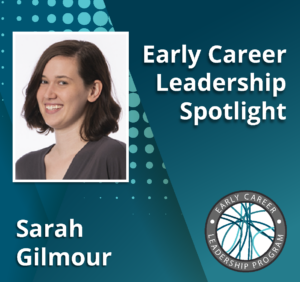We’re taking time over the following weeks to get to know the members of the GSA’s Early Career Scientist Committees. Join us every week to learn more about our early career scientist advocates.
![]()
Caitlin McDonough
Co-Chair, Career Development Subcommittee
Syracuse University
Research Interest:
My motivation as a scientist is rooted in an enduring curiosity about reproduction and how, through sexual selection, it can exert a powerful influence on the evolution of traits and behaviors. The impact of these selection pressures is evident in the amazing diversity observed from mating systems to the morphology of genitals and gametes to the mechanisms of sex determination and development. My research with Drosophila seeks to better understand the structures and secretions that form the internal female reproductive microenvironment. I use functional genomics of glands and fluids to identify putative secretions and then investigate their function in mediating reproductive outcomes. I am especially intrigued by how the sequence and postmating expression patterns of these secretions evolve and how they might contribute to the female mediation of postcopulatory sexual selection and/or reproductive isolation. A deeper understanding of reproductive systems has implications for a wide array of research ranging from the development of pest control methods to informing assisted reproductive techniques for conservation, agriculture, or human health.
As a PhD-trained scientist, you have many career options. What career paths interest you the most?
At a fundamental level, I am interested in a career path that gives me the opportunity to continue to do research on questions related to reproduction, regardless of experimental system or position. I hope to pursue science that integrates investigation into both the ultimate pressures for the evolution of reproductive traits as well as the proximate mechanisms through which they function—a career where I can ask questions and develop methods to peer into the cryptic events that occur between copulation and parturition. My ideal path would be in academia, specifically at a liberal arts institution that would allow me to integrate my research with the arts and humanities.

Flies mating by Caitlin McDonough
I live in this interdisciplinary realm, translating the structures I look at down a microscope into eye-catching, hyper-realistic drawings, connecting my research to science fiction novels that imagine worlds with vastly different reproductive systems, and discussing the ways that science can have real impacts on cultural perceptions of sex, gender, and sexuality. The research I do innervates every part of my life, just as who I am impacts my science. I hope to find a career where I can develop all of these facets of my approach to science, as well as broadly share them and help foster new generations of creative, interdisciplinary scientists.
In addition to your research, how else do you want to advance the scientific enterprise?
I am committed to contributing my perspective, voice, and work as a queer, intersectional feminist and scientist toward creating a more inclusive and supportive scientific community. I want to help cultivate and promote an environment that values the unique viewpoints, perspectives, and solutions that scientists from marginalized communities and non-traditional scientists bring to research. I think this starts by listening and being receptive to critiques on the culture of science, like those shared through the Twitter tag #marginsci, as well as by creating space in our labs, institutions, meetings, and journals for the discussion of the history, philosophy, biases, and identities in science. We can also improve by engaging with the social sciences and other theoretical approaches or pedagogies to explore new ways of thinking about, teaching, and doing science. There are no easy solutions. I am not an expert, and I experience many privileges, but I want to learn and to help advance science towards an enterprise that is accessible to people of all identities, where we can comfortably discuss how our identities impact our research.
As a leader within the Genetics Society of America, what do you hope to accomplish?
As co-chair of the Career Development subcommittee, I am working on creating content in the form of interviews and social media posts that highlight diverse scientists in a variety of careers and career stages. These interviews provide an opportunity for scientists to reflect on how their identity, non-science experiences, and scientific training have contributed to their career trajectory. Our goal with this project is to increase the visibility of scientists as three-dimensional people. We hope this will help trainees, early career scientists and the public dismantle their assumptions of what a scientist looks like and gain insight into the challenges, skills, uncertainties, and triumphs associated with scientific careers.
Previous Leadership Experience:
- Vice-President – Biology Graduate Student Organization, Syracuse University
- Administrative Coordinator – Girls and Women in Science Conference, Beloit College
- Founder & Coordinator – Bridging Communities to Improve Proficiency in Science (a Syracuse Biology Outreach with local community center after school program)
Contact Caitlin
Twitter: @IdeaSpermatheca
Website: www.cemcdonough.com













